Physician-assisted dying bill passes Senate 64-12, sent back to House
Justice Minister Jody Wilson-Raybould has already thrown cold water on a major amendment
The Senate has voted 64-12 with one abstentionto send the federal government's assisted-dying bill back to the House of Commons for a vote.
MPs passed a motion Thursday morning to allow the amended bill to be debated inthe House right away, without the usual waiting periodthat would have delayed debate until Monday.
While in the Red Chamber, senatorsmade seven amendments to the legislation.
The Senate rarely alters a government bill to this extent,as the honourablesenators often defer to the Commons to craft legislation.But many senators have voiced serious concerns about Bill C-14's constitutionality, particularly the government's move to restrict physician-assisted dying to people whose natural death is "reasonably foreseeable."
- Read the text of the Senate amendments (PDF)
- Senate amendment removes near-death requirement from assisted-dying bill
- Right to die legislation 'must be stopped,' says family of Kay Carter
- Guidelines on doctor-assisted death 'insufficient,' Philpott says, as Senate studies bill
If the Liberal government rejects the Senate's move to expand eligibility for assisted dyingbeyond those who are terminally ill, itcould result ina showdown between the two chambers. The Conservative leader in the Senate, Claude Carignan, has already said there is a risk of the bill being "completely rejected"ifit comes back in its original form.
Justice Minister JodyWilson-Raybould, for her part, has said one of the Senate's keyamendments goestoo far.
"It will broaden the regime of medical assistance in dying in this country and we have sought to ensure that we, at every step, find the right balance that is required for such a turn in direction," she said of Liberal Senator Serge Joyal's amendment.
Senate communications have been active on social media since the senators got their hands on the controversialbill. They've tweeted out the followingquote cards, detailing the seven amendments that passed the Red Chamber.
'Reasonablyforeseeable'
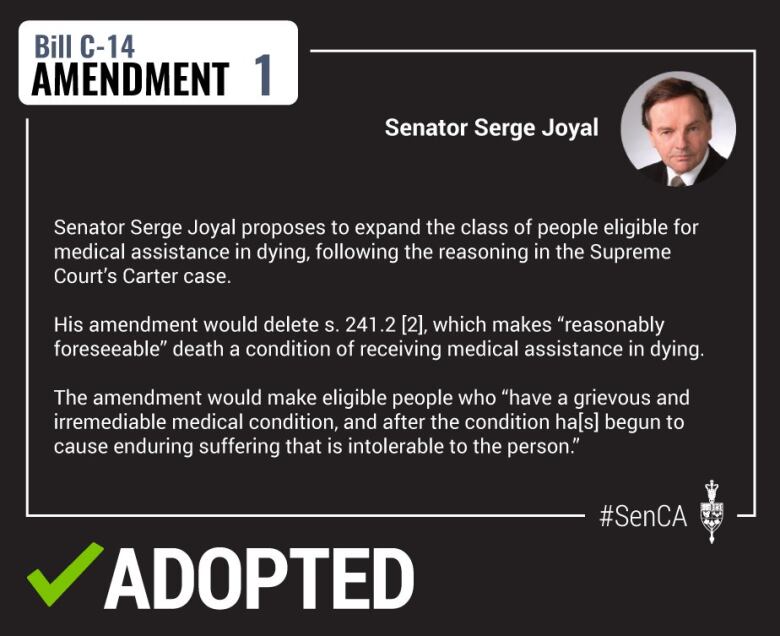
Joyal's amendment is arguably the most significant. It proposes to drop the "reasonably foreseeable" condition and replace it with eligibility criteria that are closer to that drafted by the Supreme Court of Canada in its Carter decision. AllCanadians with "a grievous and irremediable medical condition" causing "enduring suffering" would be able to access an assisted death a much broader definition than initially intended.
Palliative care
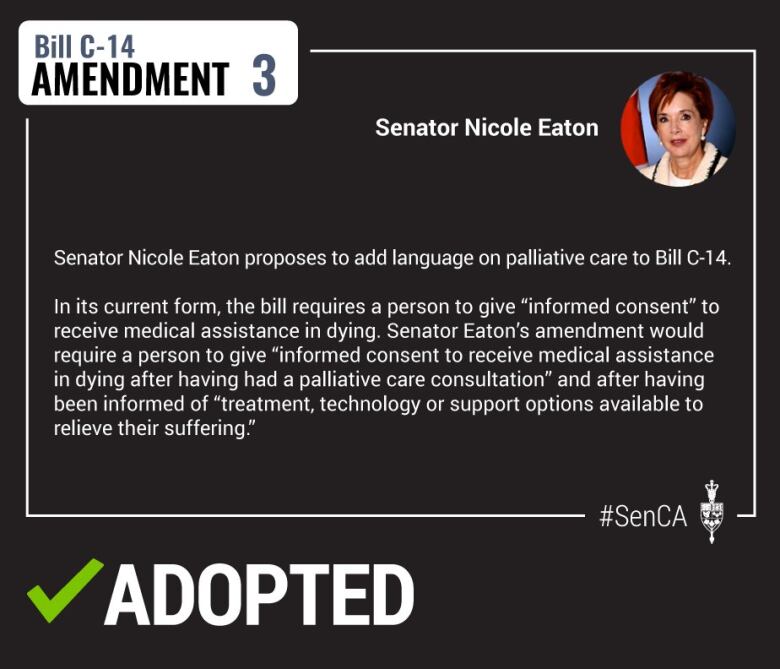
ConservativeSenator Nicole Eaton's amendment would requireall patients considering physician-assisted dying to get a full briefing on available palliative care options.
Materially benefit fromdeath
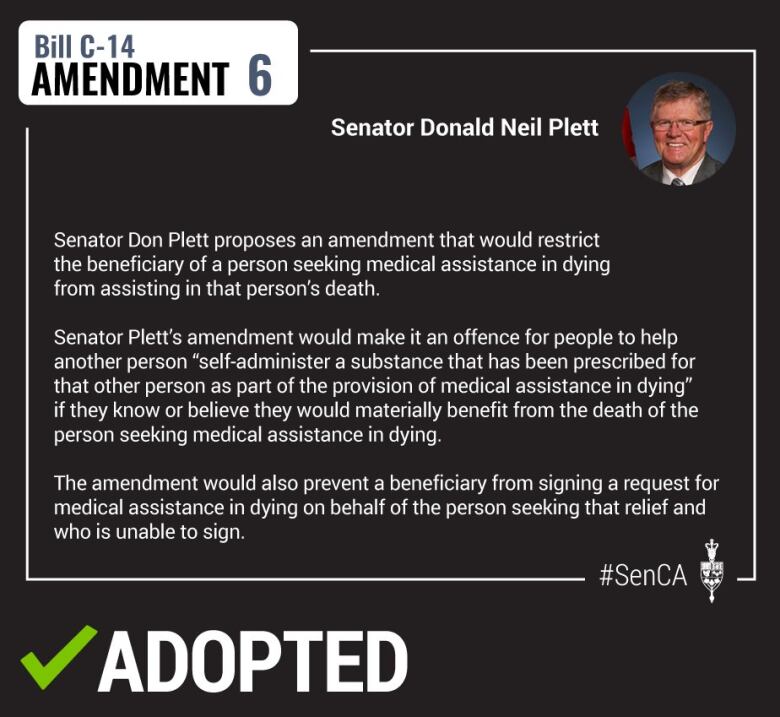
Another important change to the legislation is Conservative Senator Don Plett's amendment that would restrict who can help a person in their assisteddeath, tightening the rules around what role a person who would materially benefit from the death could do.
Death certificates
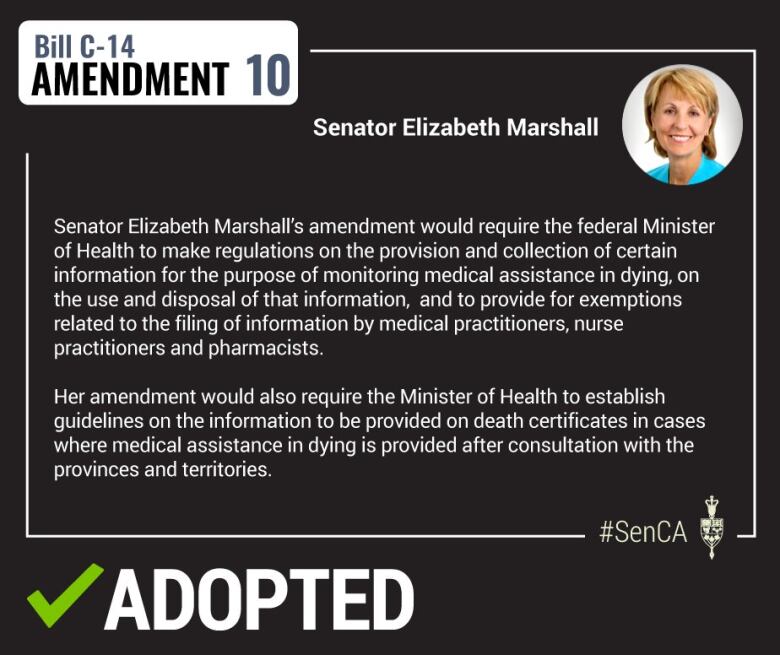
Conservative Senator Elizabeth Marshall's amendment would compel the health ministerto draft regulations around death certificatesand provide greater clarity on what information is collected by medical practitioners.
Parliamentary reports
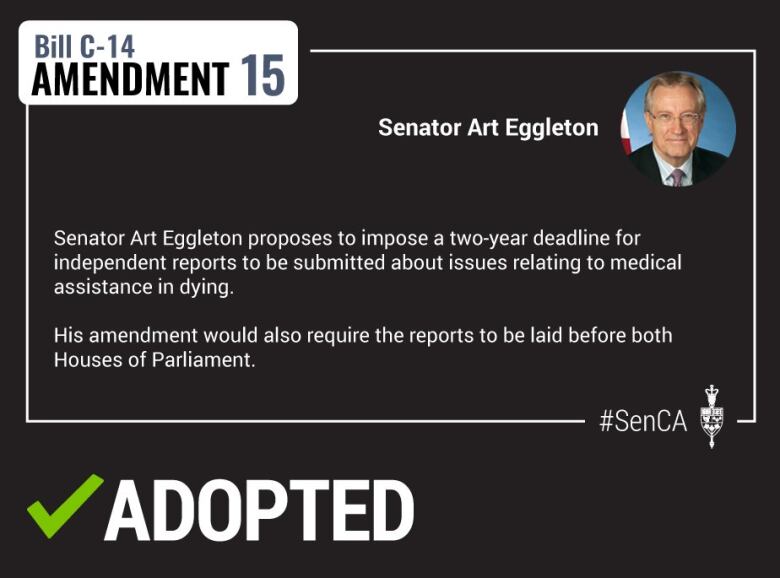
Liberal Senator Art Eggleton's amendment calls for a report to be issued to Parliament, within two years, onissues that have arisen from the provision of physician-assisted dying.
Minor languageamendments
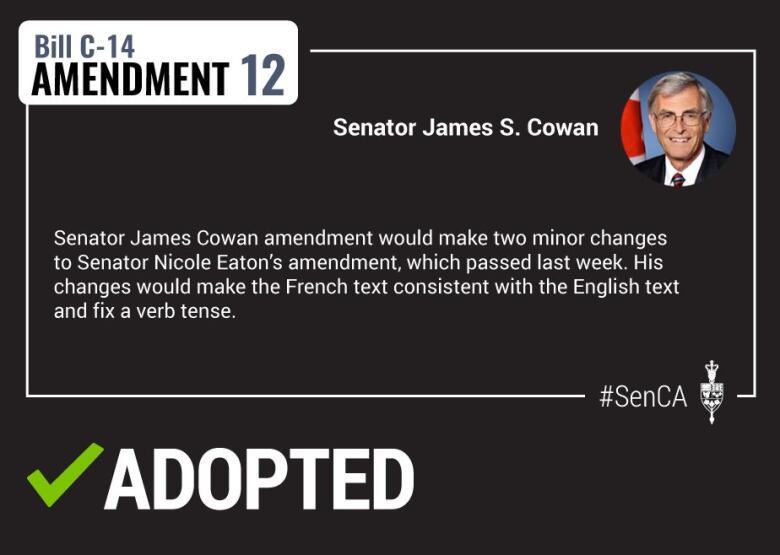
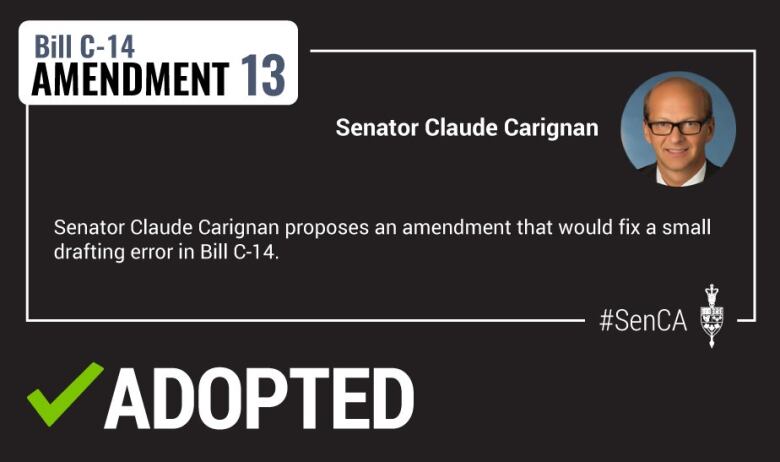













_(720p).jpg)


 OFFICIAL HD MUSIC VIDEO.jpg)
.jpg)



























































































